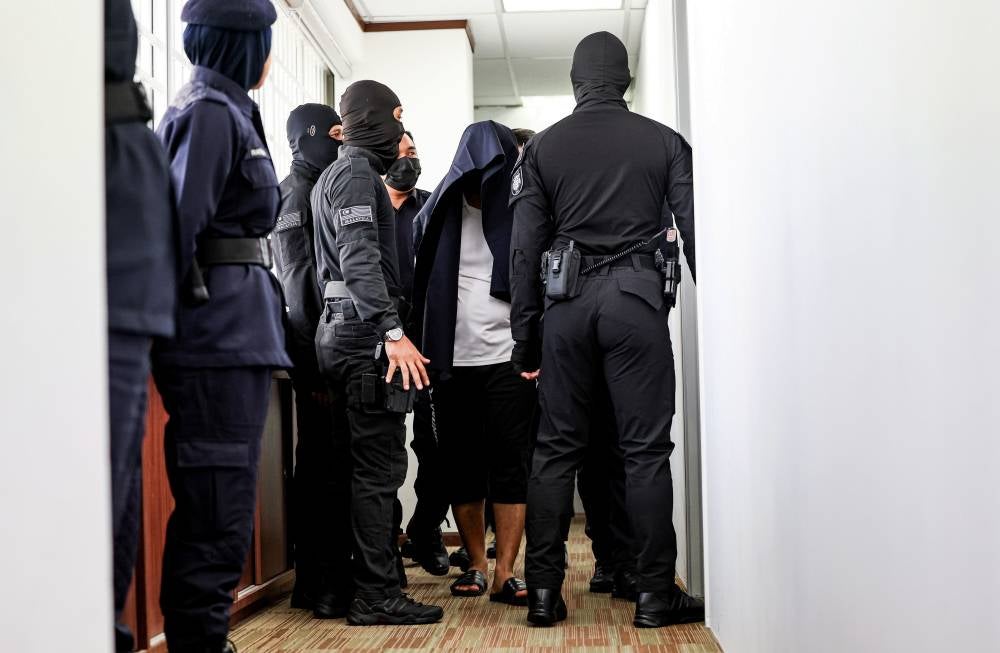Zaharif’s murder: Heavily escorted, face covered with black cloth – is it preferential treatment?
SHARIFAH SHAHIRAH
SHAH ALAM – Following the public’s outcry on the alleged ‘special treatment’ received by senior police officer who allegedly murdered schoolboy Mohammad Zaharif Affendi Muhd Zamrie, experts have come up to clarify that the handling of the murder case was not indicative of a double standard.
Rather, it was a precautionary measure taken by the authorities to fulfill their responsibilities and mitigate potential threats.
This discussion arose when Deputy Superintendent Mohd Nazri Abdul Razak who appeared at the Ipoh’s Magistrate Court over the case of fatal accident involving 17-year-old Zaharif in Meru, Ipoh, last Friday, seemed to receive preferential treatment as he was permitted to cover his face and the media faced restrictions with police overseeing and guiding his every movements.
A forensic criminologist Nadiah Syariani Md Shariff asserted that this case was not about double standards but rather an instance where authorities had to take extra precautions when handling suspects, especially in public spaces like court.
She emphasised the potential risk of harm to the suspect by individuals seeking public justice.
“I personally think it is not about double standard.
“In the legal justice system, as the trial process continues, the suspect or accused is deemed innocent until proven guilty.
“Therefore, the suspect is entitled to his rights such as the rights to personal safety, and in this case, covering faces and controlled interactions including taking questions and capturing images, perhaps, are taken as part of safety measures by the accompanying police officers,” she told Sinar Daily when contacted.
Nadiah added that taking such precautions helped prevent the formation of incorrect assumptions and the spread of rumours, which could significantly impact the investigation and pose potential threats to the suspect’s family.
In the meantime, she expressed confidence in the commitment of the Perak Police Chief to ensure justice prevailed in this case, even considering the possibility of changing the investigative officer suspected of being a close friend to the suspect.
She added this was to avoid any bias that could have affected the outcome of the investigation.
Nadiah also said the widespread hope for justice to support the victim and his family highlighted the outrage felt by the public when an innocent victim was harmed by a member of the authority,
Therefore, she said any unfair treatment due to the status quo was deemed entirely unacceptable, and if this truly happened, it would not only fuel public anger but also contribute to a broader distrust in legal authorities and the justice system.
Meanwhile, lawyer Fatihah Jamhari expressed disagreement with the idea of preferential treatment which was being spread by social media users.
In this particular case, she believed the measures taken were not preferential but rather as extra precautions aimed at preventing the influence of mob mentality from disrupting due process.
“Bear in mind that there are already aggressive demands being made against the offender.
“While he deserves death (penalty), but it shouldn't be street justice rather after due process of law,” Fatihah said when contacted by Sinar Daily recently.
She further emphasised that the concern lies not with the law itself but with the practices of arresting officers.
Fatihah said the case served as a noteworthy example of how police officers were perceived, particularly as a force resembling a mafia, especially in rural areas.










